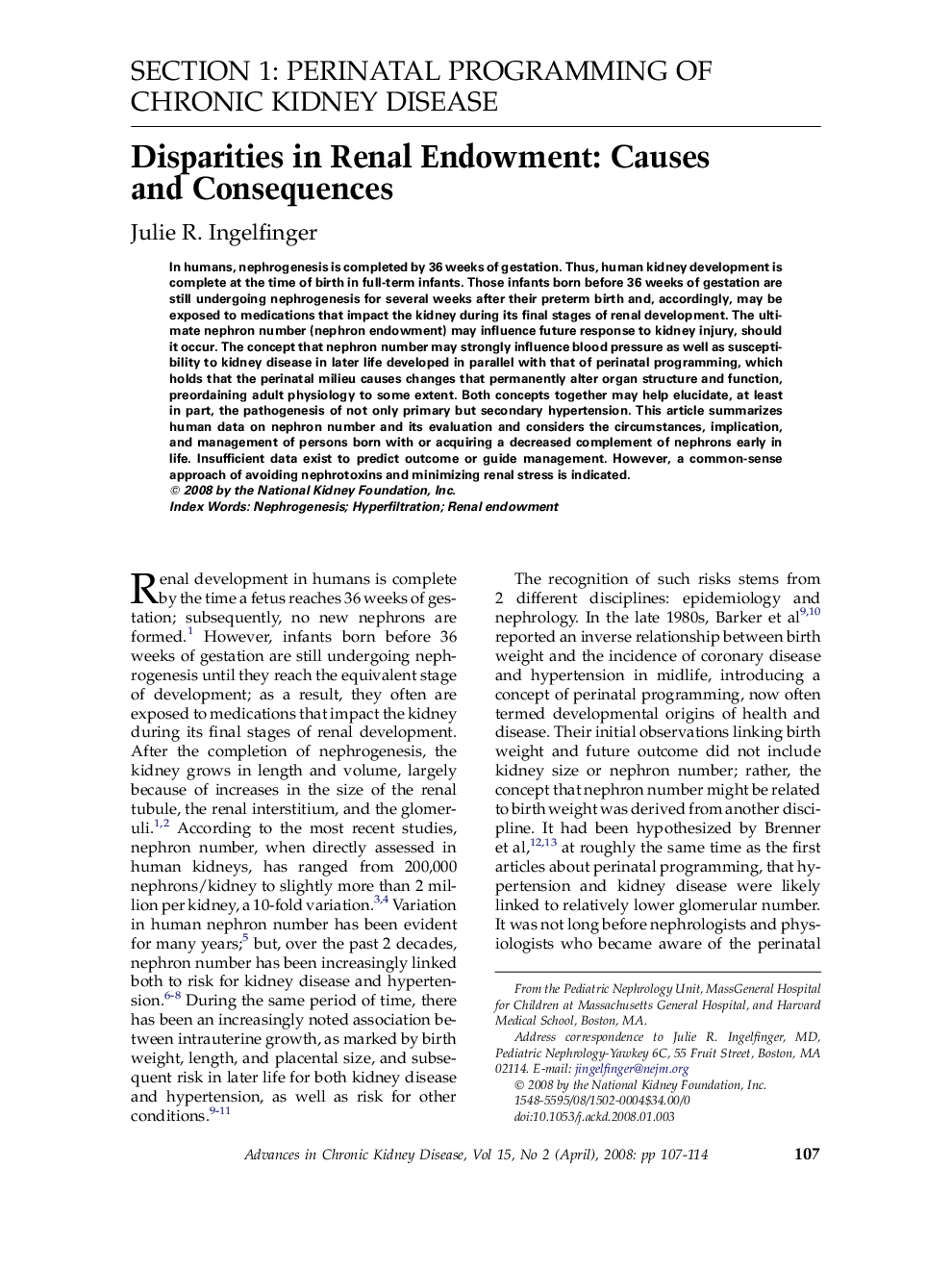| کد مقاله | کد نشریه | سال انتشار | مقاله انگلیسی | نسخه تمام متن |
|---|---|---|---|---|
| 3846744 | 1248341 | 2008 | 8 صفحه PDF | دانلود رایگان |
عنوان انگلیسی مقاله ISI
Disparities in Renal Endowment: Causes and Consequences
دانلود مقاله + سفارش ترجمه
دانلود مقاله ISI انگلیسی
رایگان برای ایرانیان
موضوعات مرتبط
علوم پزشکی و سلامت
پزشکی و دندانپزشکی
بیماریهای کلیوی
پیش نمایش صفحه اول مقاله

چکیده انگلیسی
In humans, nephrogenesis is completed by 36 weeks of gestation. Thus, human kidney development is complete at the time of birth in full-term infants. Those infants born before 36 weeks of gestation are still undergoing nephrogenesis for several weeks after their preterm birth and, accordingly, may be exposed to medications that impact the kidney during its final stages of renal development. The ultimate nephron number (nephron endowment) may influence future response to kidney injury, should it occur. The concept that nephron number may strongly influence blood pressure as well as susceptibility to kidney disease in later life developed in parallel with that of perinatal programming, which holds that the perinatal milieu causes changes that permanently alter organ structure and function, preordaining adult physiology to some extent. Both concepts together may help elucidate, at least in part, the pathogenesis of not only primary but secondary hypertension. This article summarizes human data on nephron number and its evaluation and considers the circumstances, implication, and management of persons born with or acquiring a decreased complement of nephrons early in life. Insufficient data exist to predict outcome or guide management. However, a common-sense approach of avoiding nephrotoxins and minimizing renal stress is indicated.
ناشر
Database: Elsevier - ScienceDirect (ساینس دایرکت)
Journal: Advances in Chronic Kidney Disease - Volume 15, Issue 2, April 2008, Pages 107-114
Journal: Advances in Chronic Kidney Disease - Volume 15, Issue 2, April 2008, Pages 107-114
نویسندگان
Julie R. Ingelfinger,